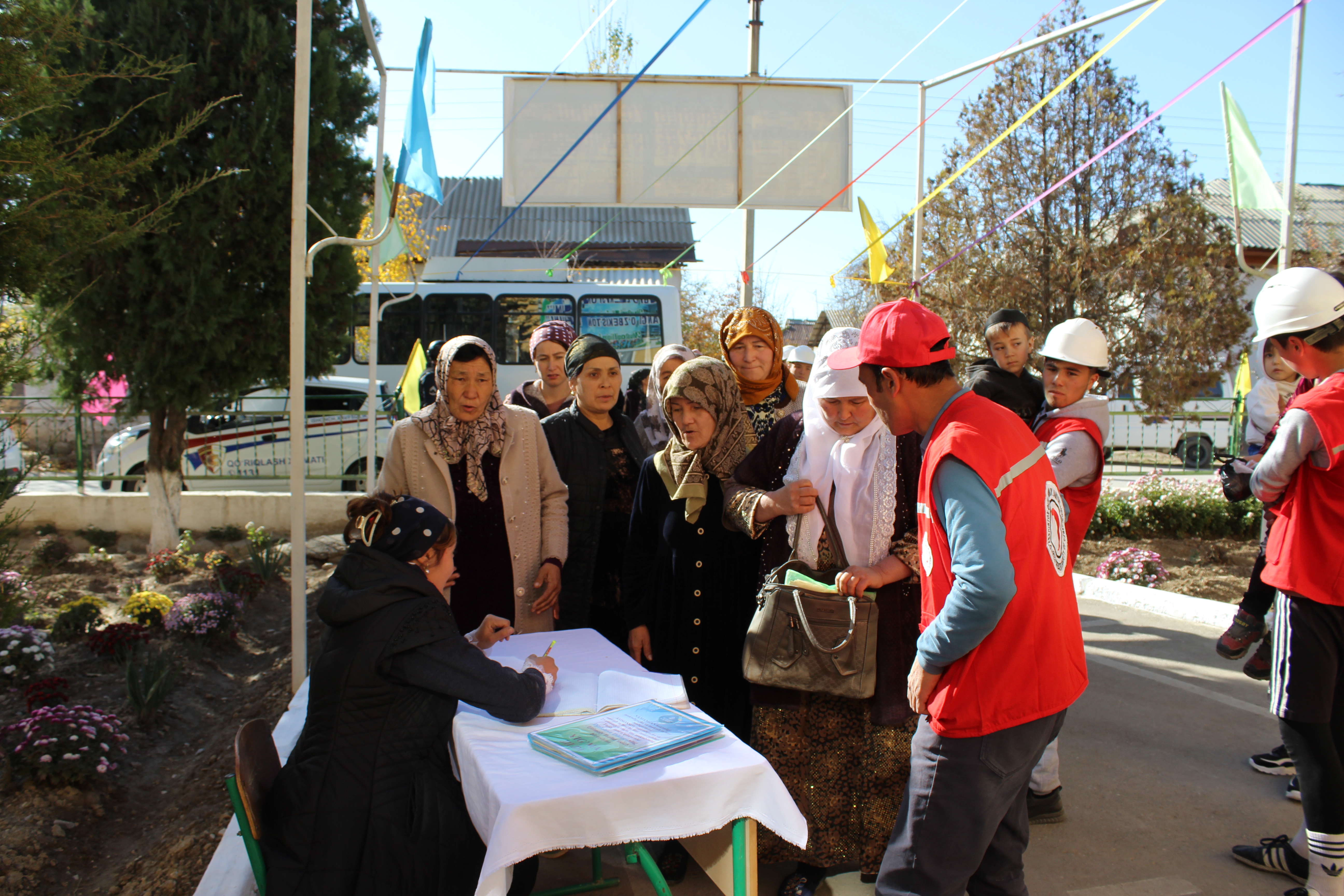UNDP trains residents of mahallas on effective disaster responses
November 27, 2023

“Our mahalla is located in the foothills of Chatkal Range on the border with Kyrgyzstan and is separated by the Chust channel (known as Khitoy-sai among locals). Melting of snow from these mountains or heavy rains cause overflows and mudflows,” says Inobat Rakhimova, a 60-year-old resident of the Obodon mahalla in the Kasansay district of the Namangan region, pointing at the mountains in front of us. “In the time of our grandparents, mudflows were so strong that they demolished buildings and left people without homes and means of survival.”
Together with her seven-year-old granddaughter, Inobat Rakhimova participated in simulation exercises organized by the UNDP and Ministry of Emergency Situations project, financed by the Green Climate Fund, in collaboration with the Red Crescent Society in Uzbekistan.

During the evacuation drill, 350 residents of the mahalla, including women, children and the elderly, as well as service employees and medical workers, have improved their skills in responding to mudflows and possible consequences, such as the rubble of houses, a fire in the territory of a destroyed building due to gas leaks. According to the scenario, the process of organizing the evacuation of residents to tent camps, providing medical care and temporary accommodation for residents of the mahalla has beenworked out. Upon completion, the results were summed up and areas requiring improvement were analyzed.
As a follow up, residents and specialists of this mahalla, as well as six other mahallas in Tashkent, Samarkand, Syrdarya, Kashkadarya, Jizzakh and Fergana regions will be participating in the training workshops. Residents will learn more about disasters caused by climate change, draw up simple risk maps of their community and plan activities that will help them reduce disaster risks.
In Uzbekistan, 26% of the population faces potential risks of mudflows and landslides that occur in mountainous and foothill areas. UNDP, together with the Ministry of Emergency Situations and Uzhydromet, is working to establish a Multi-Hazard Early Warning System. In the face of increasing climate risks, this system will serve to enhance the climate resilience of the people of Uzbekistan, including the most vulnerable and poor rural communities living in mountainous areas currently at risk from climate-induced hazards.

The project “Enhancing Multi-Hazard Early Warning System to increase resilience of Uzbekistan communities to climate change-induced hazards” is a joint effort of UNDP, the Ministry of Emergency Situations, Uzhydromet, funded by the Green Climate Fund. The project is designed to ensure modernization of the country’s early warning system into an impact-based MHEWS with the focus on floods, mudflows, landslides, avalanches and hydrological drought in the more populous and economically important eastern mountainous regions of Ferghana Valley.

 Locations
Locations



